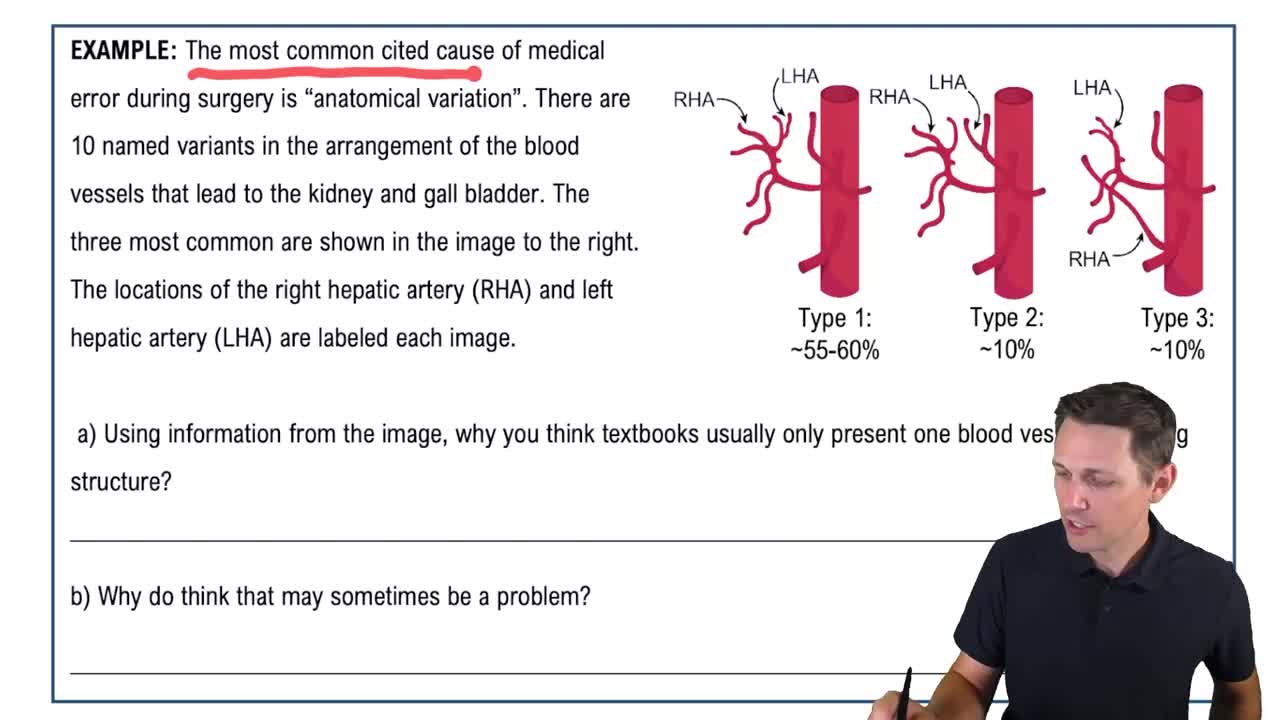Here are the essential concepts you must grasp in order to answer the question correctly.
Blood Volume
Blood volume refers to the total amount of blood circulating within the body. In adults, this volume typically averages around 5 liters, which is crucial for maintaining adequate circulation, oxygen delivery, and nutrient transport throughout the body.
Recommended video:
Homeostasis
Homeostasis is the body's ability to maintain stable internal conditions despite external changes. Blood volume plays a vital role in homeostasis, as it affects blood pressure and the overall fluid balance, which are essential for proper physiological function.
Recommended video:
Introduction to Homeostasis
Physiological Variations
Physiological variations refer to the differences in blood volume that can occur due to factors such as age, sex, body size, and health status. Understanding these variations helps in recognizing that while 5 liters is an average, individual blood volume can differ significantly.
Recommended video:
Variation in Anatomy & Physiology Example 1
 Verified step by step guidance
Verified step by step guidance


